Counselling & Psychotherapy
Our highly experienced team specialise in providing evidence-based treatments for depression, anxiety, trauma and relationship issues. Clients do not always seek counselling with a specific mental health concern, but sometimes seek therapy to develop a deeper understanding of themselves to improve the quality of life and gain insight into their behaviours.
Relationship and Couples Counselling
Couples counselling is a form of psychotherapy that helps couples improve their relationship and communication. It can help couples to identify and work through issues that are causing conflict and tension in their relationship. Through counselling, couples can learn skills to help manage their emotions and conflicts in a positive way, and build a stronger, healthier relationship. Couples counselling can also help to address underlying issues, such as addiction or trauma, which may be affecting the relationship. With the help of a trained couples counsellor, you can work to understand each other better and create a healthier, more fulfilling relationship.
Is it too late?
Some couples come to therapy to explore if the relationship has come to an end. Our experts have helped countless couples in this position find a healthy way to part and process what has been gained and lost.
Dr. Martin Gryszkiewicz-MacKenzie
Martin Gryszkiewicz-MacKenzie holds a PhD in Psychology and is an accredited CBT Psychotherapist with the British Association for Behavioural and Cognitive Psychotherapies (BABCP) and is a chartered psychologist with the British Psychological Society (BPS).
He has worked in the Royal Cornhill Hospital for ten years in inpatient settings and since 2022 he has worked as a CBT Therapist for NHS Grampian. Also, for the last ten years he has been the clinical director for the psychological help & counselling and pedagogy services in the Polish Association Aberdeen, a local charitable organisation.
Dr Gryszkiewicz-MacKenzie has substantial experience in working with individual adolescents and adults. His expertise focuses on depressive disorders, anxiety disorders, healthy behaviour change, wellbeing promotion, and supporting those who live with a long-term illness. In addition, Dr Gryszkiewicz-MacKenzie is particularly interested in supporting people with their psychosexual health. Throughout his career Dr Gryszkiewicz-MacKenzie has constantly improved his qualifications and knowledge and remains passionate about his work. Currently, he is continuing his professional development by undertaking Stage 2 training in Health Psychology through the BPS to gain his qualification to become a certified Health Psychologist.
He offers online therapy as well as face-to-face in English and Polish at the Alpha Hospital Group in Aberdeen.
Meghan G. Donnelly
Meghan G. Donnelly is a qualified counsellor with an MSc in Person-Centred Counselling from the University of Aberdeen. Before becoming a counsellor she was a university instructor for nine years and also supported young adults with autism and learning disabilities. She has experience counselling in person and online, and two years of experience volunteering by phone on a lifeline in Tokyo, Japan. Living in various Asian countries where mental health was often perceived as taboo, working on the lifeline, and her personal experiences with talk therapy and EMDR, influenced her to pursue a career in counselling. Her interests in counselling include depression, anxiety, grief, relationships, cultural issues, domestic abuse, and trauma. She offers online and face-to-face therapy at Alpha Hospital Group Aberdeen.
FAQ
Most frequent questions and answers
It is normal for there to be some swelling and possibly even some bruising for a few days after facial fillers but generally you will see an immediate difference in volume and shape of the treated
area. The results tend to improve as the swelling settles and the filler begins to sit more naturally in the skin
When the telltale signs of age begin to bother you such as nasolabial folds (deep lines from nose to mouth), marionette lines (downturned mouth corners) pre jowls and loss of jawline definition, loss of cheek fullness and resultant flattening, hollows and bags under eyes, hollowing of the temple. Filler can also add volume and definition to the lips.
There may be slight discomfort whilst the filler is being injected into the face but we minimise this by applying anaesthetic cream before treatment. To provide further relief some fillers contain a pre-mixed local anaesthetic.
Avoid touching the treated area for 3-4 hours following the injection. You can gently cleanse the area but no rubbing or massaging.
Do not expose the treated area to intense heat (sun exposure, sunbed, sauna) or extreme cold. Protect your skin use an SPF50.
Try to sleep on your back with your head elevated using a couple of pillows for the first few nights and this will ensure that the newly injected filler stays in place.
It can take up to 14 days for the filler to settle and any swelling to completely go.
Drinking plenty of water can keep your skin hydrated and enhance the effect of hyaluronic acid fillers.
Results can last up to approximately 6-18 months depending on the product and treatment chosen.
Lifestyle plays a big part in the longevity of your filler. Smoking, drinking alcohol and sun exposure can all have an effect on how long your filler will last.
The dermal fillers we use are not permanent and breakdown in the skin over time. Since the results are only temporary you can expect your pre-treatment wrinkles to reappear after the filler is absorbed by the body.
We would suggest not taking any blood thinners (unless prescribed by your doctor), fish oil or Vitamin C starting one week prior to treatment due to increased risk of bruising.
No alcohol 24 hours prior to treatment. No alcohol 24 hours post treatment. Alcohol can cause further swelling to the injected areas.
People who are pregnant or breastfeeding. Also anyone who is battling a sinus infection as any infection in the facial area could spread to the injection site.
Guidelines are do not have fillers within 2 weeks before Covid-19 Vaccine and leave 3 weeks after Covid-19 Vaccine. Do not have fillers in between the 2 doses of Covid-19 Vaccine.
